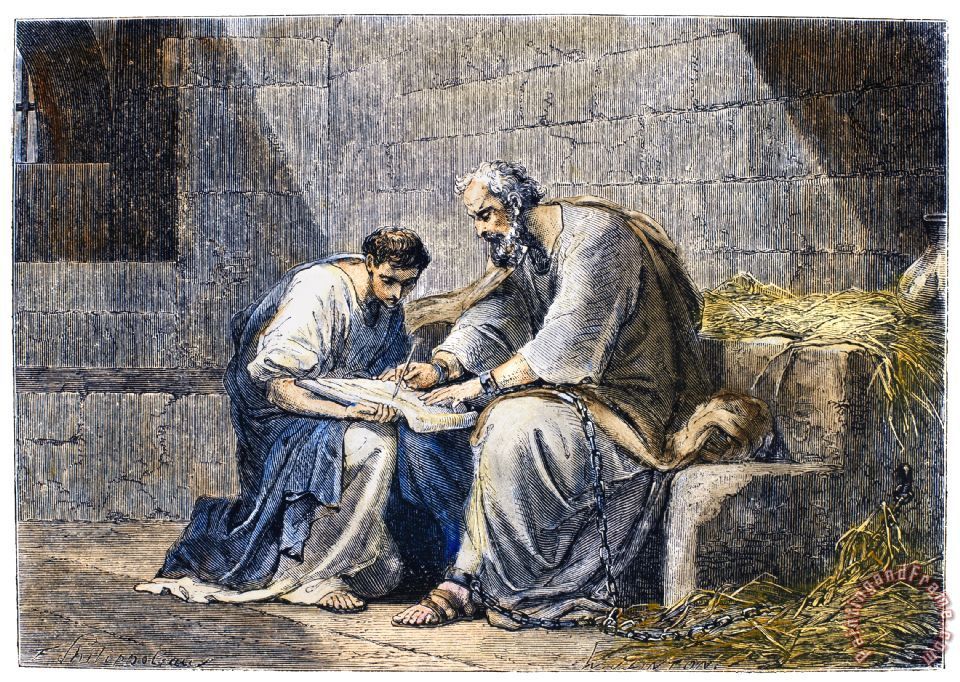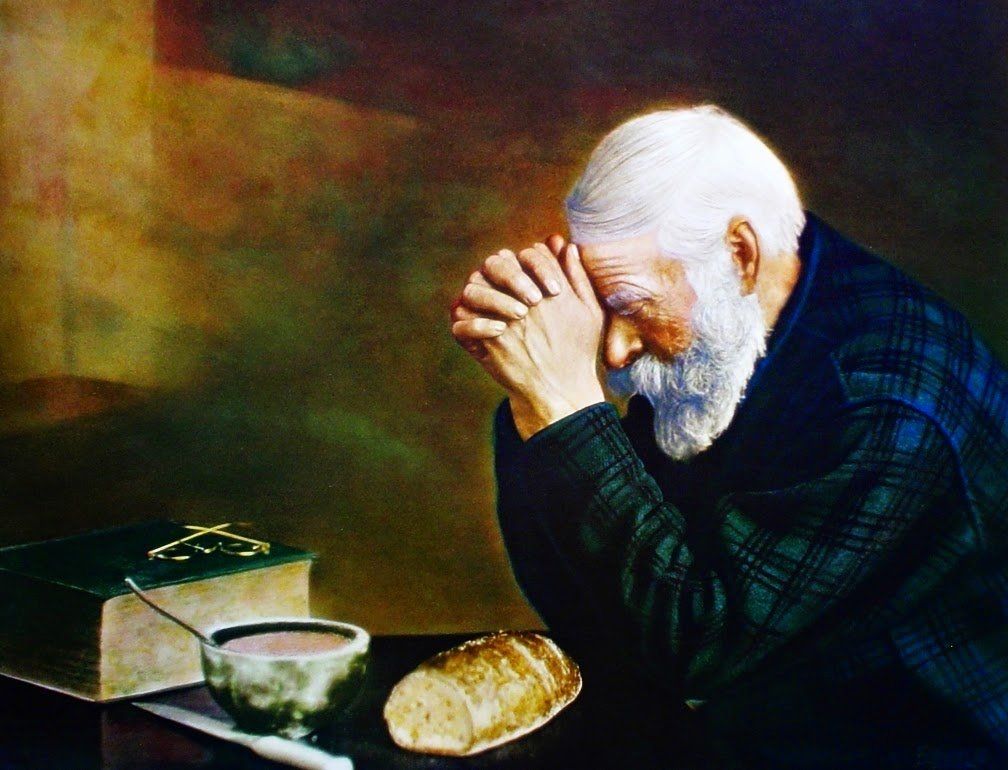The Tale Of Two Mountains (1 Kings 19:1-8)
Eleventh Sunday After Pentecost, August 8, 2021
Grace be unto you, and peace, from God our Father, and from the Lord Jesus Christ. Amen.
Text: 1 Kings 19:1-8, but especially these words –
Elijah was afraid and ran for his life…He came to a broom tree, sat down under it and prayed that he might die. “I have had enough, Lord,” he said. “Take my life; I am no better than my ancestors”…All at once an angel touched him and said, “Get up and eat”…So he got up and ate and drank. Strengthened by that food, he traveled forty days and forty nights until he reached Horeb, the mountain of God.
In the name of the Father, and of the Son, and of the Holy Spirit. Amen.
Dear Friends in Christ Jesus:
One of the more prevalent ideas today about the Christian life is that it’s an adventure. A kind of pilgrimage, we’re assured, that moves from one glowing success to another, from one joyous moment to another. They tell us that if we have sufficient faith in God and, particularly, in ourselves, there are no limits as to what people can achieve. So we are called upon to step on this escalator of promised joy, moving upward endlessly to new levels of happiness. There’s one thing wrong, however, with this idea. It doesn’t square with the realities of life. The rough facts of daily living keep running up against these all too simple sentiments.
If you want to put a finger on the source of so much difficulty with trying to deal with the matters that actually confront us in our lives, you need to look no further than this increasingly obvious fact – at the very time living becomes more and more demanding, with ever more complex situations to deal with, people are reducing their faith to ever more simpler terms. In place of remarkable statements and declarations about God and His ways of working, they discover that they’ve been trying to manage in tough situations with nothing more than the idea that in living one doesn’t need to do any more than one’s duty. There is no room for God here. No wonder there are such frantic attempts to escape into the illusions of success that are paraded before us all.
Living is hardly that always upward moving escalator of success for any of us. It moves rather from bright moments of joy to dark times of depression, from happiness to boredom. Our relentless calendars permit too little time for reflection and privacy. Yet even in our busyness there is a haunting loneliness. To recognize this about ourselves is just being honest. Those who know something about the people whose lives are spoken about in the Bible realize that they have more in common with them than they might think.
Elijah is one of those people. What a person to become acquainted with! He moves from a brilliant success to a quivering fear. From the scene of a remarkable victory, he travels to an isolated place in the wilderness. And it’s there, where acknowledging his own inadequacy, that Elijah comes before us in the text for today.
We can go quickly over the setting. Elijah was a humble man of God. Living in the rural countryside, he moved among ordinary people. He saved a widow from starvation and restored her son to life. When he came to the nation’s capital, he must have been a strange sight. Elijah’s ways contrasted sharply with the sophisticated ways of the royal city. What happened in the city was that the king had taken a new wife, Jezebel, and he was trying to make her happy. Ahab did the unthinkable for a king of Israel. He allowed his wife’s religion, the worship of the idol Baal, to be practiced. And with Jezebel as its sponsor, the cult flourished.
However, the prophet Elijah could not keep silent. He condemned King Ahab and declared that a drought scorching the land was just punishment from an angry God. But to attack the king was to attack Jezebel and her religion. Elijah did not back off. He challenged the priests of Baal, 450 of them, to a test to see whether Baal or the God of Israel is in command. The test was held on Mount Carmel. There two bulls were prepared for sacrifice. Baal was called upon first to show his power by lighting the sacrificial fire. Throughout the day the priests cried out to Baal, but the sacrifice was not burnt. Then Elijah, having soaked the bull and stacked wood on the altar with water, called out to God – and the bull, the wood, the altar, and even the water and soil were consumed by the fire sent from God. A tremendous victory for Elijah. Jezebel was devastated and very angry. She vowed her revenge upon Elijah. Then something odd happened. Fresh from a remarkable triumph, Elijah runs away in fear over what Jezebel might do to him – rather than enjoying his victory for the God of Israel.
What a strange story this is! You may wonder why, with all the matters that confront us personally, in the nation, and in the world – that you should be taken back to the quarrels of a distant time. We don’t know the prophet Elijah – but we can recognize something of our confusing fears in him. From the mountain of triumph to the depressing moments of uncertainty and fear, we move also.
Yes, human beings become fearful and disturbed – and that’s the point. Our Christian lives move at times, like the liturgy, from the tremendous alleluias to the humbleness of “Lord, have mercy.” From Mount Carmel to the wilderness, we know the journey well.
Whenever you and I ask ourselves, “Where am I in my Christian life?” – we become aware that battles are hardly won before we slip off into the loneliness of uncertainty. To confess that we know both wonderful moments of peace and frantic times of doubt and fear is painful. But it’s an honest confession. We get nowhere in our spiritual lives with Christ unless we’re honest with Him and with ourselves.
Surely we have learned that there are no permanent triumphs in our Christian life here on earth. Just when we’ve nailed down a victory over one frustrating thing or another, we must turn to fight another battle with doubt. With the prophet Elijah we can say –“’I have had enough, Lord’, I just can’t fight any more.” So just what do we do? For Elijah it was going back to the beginnings, going back to the place where God had sealed His covenant with His people, going back to Mount Horeb, the source of the nation’s life with God.
I imagine that many of us here this morning have at one time or another misplaced something fairly important. At first there was a frantic searching for the missing item. With no immediate success, the search became more intense until you said – “Now wait a second. This is ridiculous. I’ll just go back and retrace the places where I’ve been.”
This is something that the prophet Elijah did. Trapped in his fears despite his victory at Mount Carmel, he decided to go back to another mountain, to Mount Horeb to find there his God and himself. The journey wasn’t easy. He traveled forty days and forty nights. But at Horeb, Elijah found renewal in the presence of God and a renewed call to service. God gave him back his life.
There’s always a danger to going back to the beginnings. We can readily become stuck in a sentimental desire for a simpler time or for a day that never was. Do you remember how Jesus, moving with His disciples closer to Jerusalem on that final visit, was urged by them to turn back to Galilee. Alarmed by the words of imminent suffering and death, they encouraged the Lord to seek the easier way.
Jesus did not turn back. He went on to the cross, but beyond that day of injustice God would bring about a Resurrection Day. Even the grace of God in Jesus Christ has come to us through the stubborn facts of human existence. Battles in our spiritual lives aren’t lost by retreating from the field of battle. Victories come when, falling back to regroup, we turn to enter again the battlefield.
We know this to be so. Most of us aren’t new to the faith. We have walked with our Lord through green pastures and still waters. We have fallen asleep in the Garden of Gethsemane with the disciples. Like St. Paul, we have known what it is to be exalted and what it is to be despised. Our Christian lives haven’t moved like that ascending escalator. They have appeared too often like a roller coaster ride at an amusement park. But that has not deterred us.
Considering the times in which we live, that is an amazing fact about us Christians. If you are looking for a sign of God’s power, all you have to do is look around here this morning. You are here with others – the Bible is still read here. Prayers to our gracious God are still offered up to Him. Gifts are presented and soon you will be sent back to your own work and life with the assurance that the Lord will give you peace. Many of you have been living the Christian life together for some time. Whether on the heights of joy or in the valley of sadness, others have been close to share it with you. If you stumbled and fell, there was always some hand stretched out to you offering to get you back on your feet and help for a fresh start.
From Mount Carmel, to the wilderness, to Mount Horeb, the prophet Elijah traveled that way. Peter did it too, and so did the apostle Paul, as well as saints throughout the ages. So we are never alone. Jesus, who also walked that way, offers food to all who will still make that journey. “I am the bread of life,” Jesus said. “He who comes to me will never go hungry, and he who believes in me will never be thirsty.” Our Lord nourishes us for all of our walks with Him from Carmel, to the wilderness, and to Horeb. If at times God seems far away, there is a cross here to remind you that long before you ever reached out to Him, He reached out and enfolded you in His arms.
Today, be assured of this – From your Mount Carmel to your Mount Horeb, the Lord is faithful to His promise – “I will not leave you as orphans; I will come to you…Your grief will turn to joy…In this world you will have trouble. But take heart! I have overcome the world.” Amen.
The peace of God, which passes all understanding, keep your hearts and minds through Christ Jesus. Amen.








